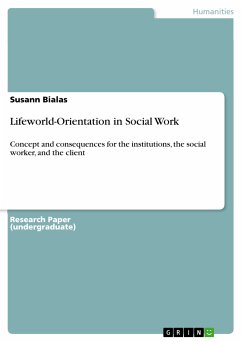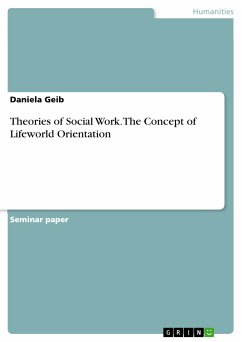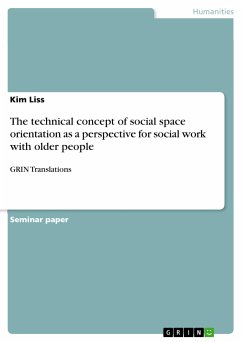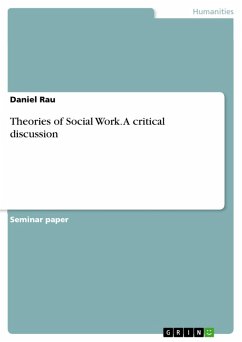Research Paper (undergraduate) from the year 2008 in the subject Social Work, grade: 1,1, University of Cooperative Education Villingen-Schwenningen, language: English, abstract: The terms "lifeworld" and "lifeworld orientation" are in constant use and seem to be omnipresent. The lifeworld seems to be taken for granted, as it is hardly ever discussed in detail or concretely distinguished from other terms such as "everyday life" or "social space". The concept of lifeworld orientation plays a major role in social education, especially in child and family welfare. At the latest since the Eighth Youth Report, the so-called lifeworld orientation has been considered a central paradigm of youth welfare. Above all, the educator Hans Thiersch, who was also involved in the preparation of this report, coined the term "lifeworld orientation". The discussion of lifeworld-oriented social work was triggered by changes in society. Today, coping with everyday life requires many more preconditions, such as self- and social competence, assertiveness or self-confidence, than in earlier decades, when gender and generational roles, educational, health and nutritional concepts as well as career paths were still predetermined by stable traditions and social relations.
Dieser Download kann aus rechtlichen Gründen nur mit Rechnungsadresse in A, B, BG, CY, CZ, D, DK, EW, E, FIN, F, GR, HR, H, IRL, I, LT, L, LR, M, NL, PL, P, R, S, SLO, SK ausgeliefert werden.









